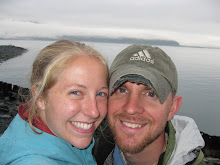“Digital Natives, Digital Immigrants"
by Marc Prensky
Overview
This article introduces Digital Natives versus Digital Immigrants and explains how the discontinuity between these types of people has become a major issue in our educational system. Digital Natives are those who grew up with technology – video games, computers, Internet – and can fluently speak techie lingo.
Digital Immigrants, on the other hand, are those who struggle to keep up with technology. They do things the old-fashioned way and take the scenic routes when traveling Information Super Highways. The author describes discontinuities in generations as a singularity, “an event which changes things so fundamentally there is absolutely no going back.”
Schools with Digital Natives and Digital Immigrants not only have generation clashes, but also students who are not engaged. Most students would fit into the Digital Native category, while many old-school teachers fall into Digital Immigrant status. How does this affect the inside of a classroom? Here’s a striking detail the author points out: On average, college graduates spend less than 5,000 hours reading, more than 10,000 hours playing video games and 20,000 watching television. To Digital Natives, school feels like they stepped into a foreign country.

